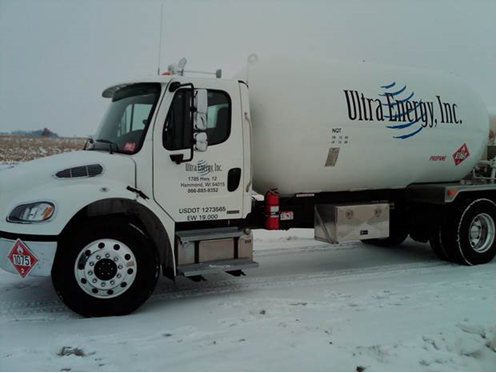The Baker Hughes United States Rig Count is down three from last week to 488, with oil rigs down two to 385, gas rigs down one to 103, and miscellaneous rigs unchanged at zero.
KING OF PRUSSIA, Pa., (Aug. 2, 2021) — The propane grill tank delivery service Propane Taxi announced it will now operate under the name Cynch in the Atlanta, Georgia, Dallas and Austin, Texas, and Washington, D.C. markets. The change comes with a simplified ordering process and a refreshed brand look on its website, www.cynch.com.
Toledo, Ohio (Aug. 4, 2021) — Bergquist Inc. has announced two new hires, welcoming Jack Zoback as an area sales manager and Amy Berg as a tank monitor sales specialist.
WASHINGTON, DC – The United States Department of Labor’s Occupational Safety and Health Administration collaborated with the
 Appleton, Wis. (July 26, 2021) – U.S. Gain is excited to welcome Lynn Lyon as their new director of business development – sustainable transportation.
Appleton, Wis. (July 26, 2021) – U.S. Gain is excited to welcome Lynn Lyon as their new director of business development – sustainable transportation.
WINSTON-SALEM, N.C. (July 29, 2021) — What can be better than sharing food fresh off the grill with friends and family during the peak summer months? How about learning unique new recipes and smart cooking techniques each week from two of the biggest names in grilling?
 Canton, Mass. (July 26, 2021) — Carl Kaplan, a veteran of the natural gas, propane and fuel oil distribution industry, has been named manager of business development at Gray, Gray & Gray, LLP.
Canton, Mass. (July 26, 2021) — Carl Kaplan, a veteran of the natural gas, propane and fuel oil distribution industry, has been named manager of business development at Gray, Gray & Gray, LLP.
The United States Department of Labor announced a final rule to rescind an ea
Global energy and commodity price reporting agency Argus has launched 10 new freight price assessments for tankers transporting liquefied petroleum gas (LPG). These prices are a response to market demand for greater transparency in the growing and increasingly complex global trade in LPG, which comprises butane and propane.
The Baker Hughes United States Rig Count is up seven from last week to 491, with oil rigs up seven to 387, gas rigs unchanged at 104, and miscellaneous rigs unchanged at zero.
WASHINGTON (July 21, 2021) — The United States Consumer Product Safety Commission has recalled a Harbor Freight Tools propane product due to burn hazards. Find out more information about the recall below.
FLANDERS, N.J. — Advanced Digital Data, Inc. (ADD Systems) announced that Gregg Lounsbury, software application specialist, has retired after 20 years with ADD Systems.
The Baker Hughes United States Rig Count is up five from last week to 484, with oil rigs up two to 380, gas rigs up three to 104, and miscellaneous rigs unchanged at zero.
HOUSTON – Trafigura Trading LLC, a wholly-owned, indirect United States subsidiary of Trafigura Group Pte Ltd, together with Haddington Ventures LLC have acquired NGL Energy Partners LP’s 71.5% interest and associated assets in Sawtooth Caverns LLC for approximately $70 million. Trafigura and Haddington Ventures now own Sawtooth as a 50:50 joint venture company.
Martinsburg, Penn. – Curry Supply Company announced it has named Christopher Rearick sales manager in the Northeast region. Rearick is a sales veteran who will be responsible for the distribution and sales of Curry Supply’s products and services throughout the Northeast. Within his day-to-day operations, Rearick will oversee all aspects of direct and indirect sales across Maine, Vermont, New Hampshire, New York, Massachusetts, Connecticut, and Rhode Island.
 FREDERICK, Md. (July 16, 2021) — ThompsonGas, headquartered in Frederick, Maryland, announced the acquisition of Ultra Energy located in Hammond, Wisconsin.
FREDERICK, Md. (July 16, 2021) — ThompsonGas, headquartered in Frederick, Maryland, announced the acquisition of Ultra Energy located in Hammond, Wisconsin.
Canton, Mass. (July 14, 2021) — Gray, Gray & Gray LLP has announced the promotion of five team members to new positions:
SAN DIEGO (July 14, 2021) — Oberon Fuels, a producer of ultra-low carbon, renewable dimethyl ether (rDME) transportation fuels, announced that propane industry executive and advocate Cinch Munson has joined the team as vice president of commercial development. The appointment comes as Oberon has begun commercial production of rDME and is expanding market development across North America and around the world.
OMAHA, Neb. — TransWood, a privately-owned trucking company specializing in liquid and dry bulk transportation, announces the purchase of Jensen Transport of Minnesota. Jensen has been a long-time tank truck carrier in Minnesota and the surrounding geography hauling bio-fuels, anhydrous ammonia and liquified petroleum gas.
TORONTO — Superior Plus Corp. has announced that one of its wholly-owned subsidiaries has entered into an agreement to acquire the equity interests of Kamps Propane Inc., High Country Propane Inc., Pick Up Propane Inc., Kiva Energy Inc., Competitive Capital Inc. and Propane Construction and Meter Services (collectively, “Kamps”) for an aggregate purchase price of approximately US $240 million (CDN $299 million) before adjustments for working capital.

